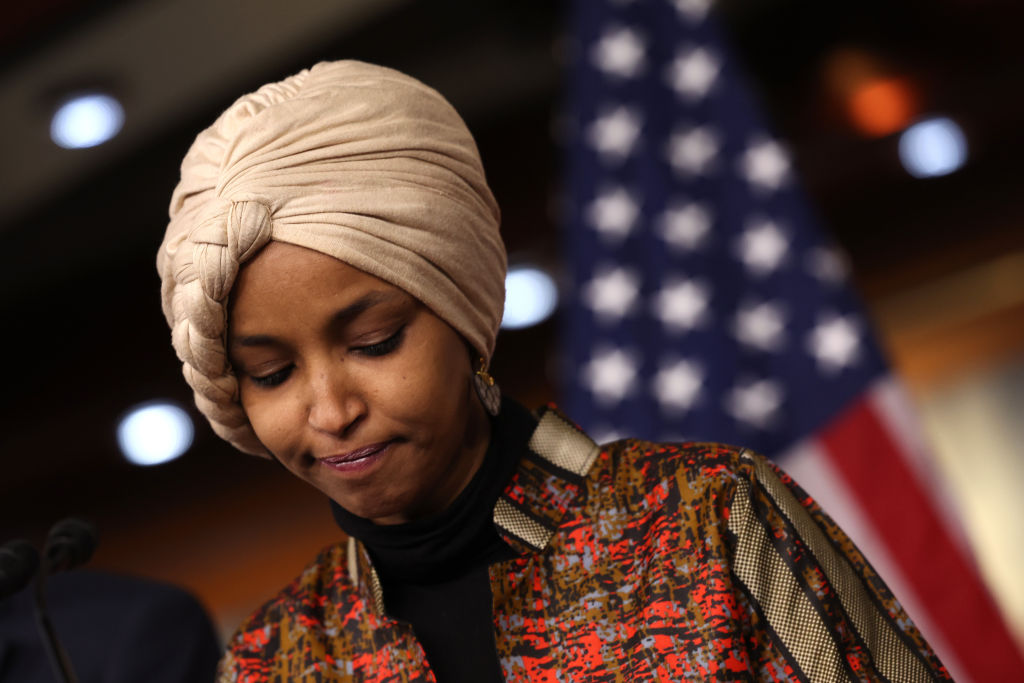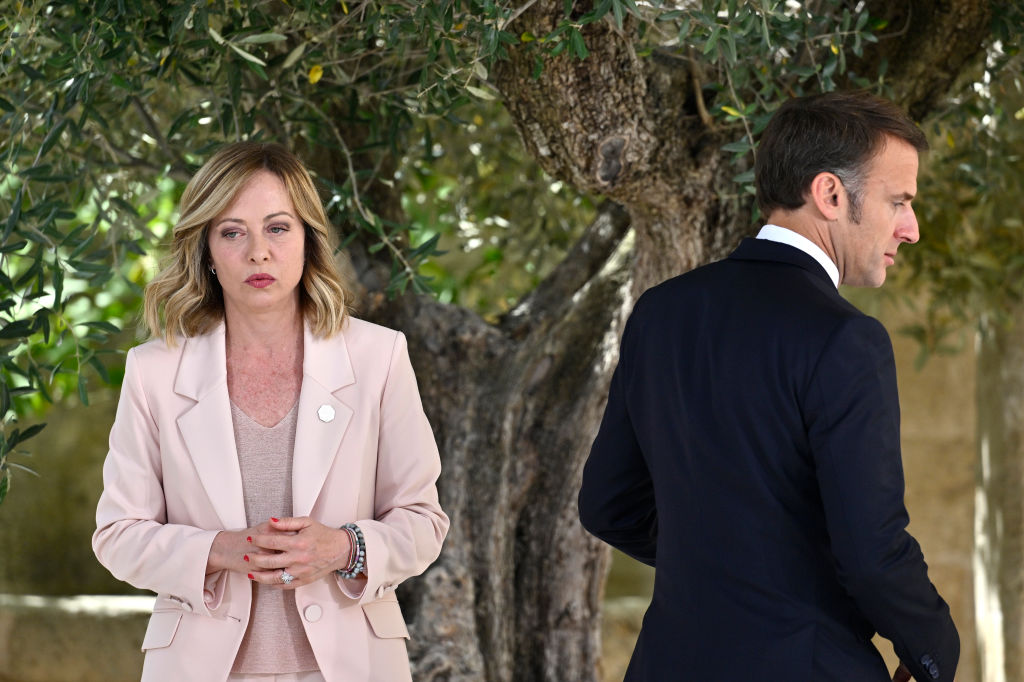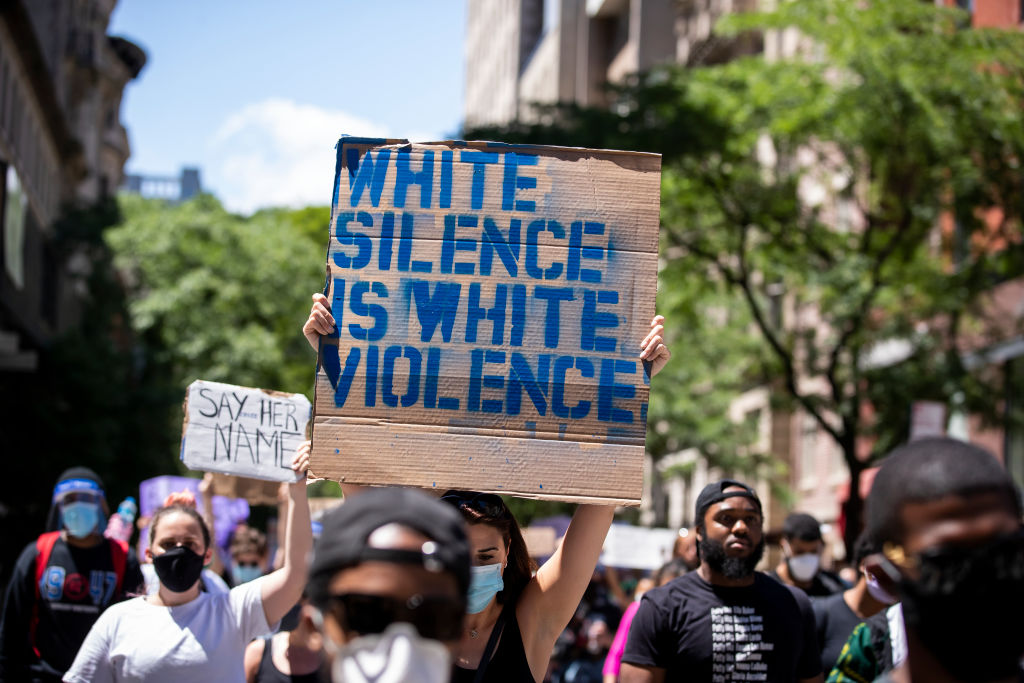Reaching out to some doubters of the American Revolution.
Welcome Home to Somalia

Ilhan Omar’s bizarre speech must be understood in the broadest sense of “constituency.”
Ilhan Omar—the sharpest, most duplicitous, and most wicked member of the “Squad”—recently gave a series of speeches, in her native tongue, to Somali-American audiences. In one such talk she addressed her “brothers and sister, people of the same blood, people who know they are Somalians first, Muslims second,” reassuring them that she will “protect the interests of Somalia from inside the U.S. system.” These interests, she explained, consist of unifying Somalian-speaking peoples of Kenya, Djibouti, and Somaliland. “The U.S. government,” she continued “will only do [what we] tell them to do.”
Omar claimed that the speech was mistranslated because she later added that Somali-Americans pay taxes and have voting rights in the U.S., but that part was included in the original video. She also insisted that she said “Somalians and Muslim,” not “Somalians first, Muslims second,” but had nothing to say about the omission of the United States from the list.
In another talk, she introduced “our” president of Somalia, describing her “special relationship” with him: “I call him uncle and he calls me his girl.” Then she dropped the most disturbing bit. “Welcome to our home, our home is your home. Welcome to Minneapolis! We are very happy that you are our president. Somalia is our home.”
In yet another video, the congresswoman confessed, “I am an American migrant in the U.S. Congress, but I’m a Somali girl, a girl with your lineage, a girl with your language, a girl with your religion…a young child taken from her country. That misses her country and wishes to live there and share with its people [applause]. I am hopeful that in the future me and my children will be able to raise our kids in that land where I was born and raised.” She appeared to suggest that she’s staying in the U.S. for the time being because it’s more prosperous and offers her a platform from which to leverage influence on behalf of her real home.
War-torn societies are full of deceit, and Somalians in particular are notorious for it. In 2008, shortly before the election of Barack Obama, the U.S. halted refugee family reunification program for Somalians after DNA evidence revealed a staggering 87 percent rate of fraud. An investigative report by Power Line blog found substantial evidence that Omar’s late father—as well as Ilhan herself—were involved in immigration fraud.
The elder Omar—real name Said Elmi—was admitted to the U.S. as a refugee despite the fact that he obtained military training in the USSR and is rumored to be complicit in genocide in his native land. How much of his history with the Somalian military was disclosed to U.S. authorities at the time of his admission is unclear, though he was a colonel under dictator Siad Barre; the family fled when Barre fell from power during the Somali Civil War. Power Line found that Said Elmi’s family was split in two in a Kenyan refugee camp. The father and half of the children merged with the Omar family and entered the United States, and the mother took the rest of children to the United Kingdom. Ilhan is widely believed to have entered into a fictitious marriage with her own brother for the purpose of giving him American citizenship. As an American citizen, he is eligible to petition for family reunification with his mother and sisters. Power Line called for law enforcement to launch its own investigation into the multiple counts of fraud that Omar possibly committed.
Omar’s first marriage to a fellow Somali was consecrated by Islamic rite but never registered with U.S. authorities. It ended in Islamic divorce and evidently lasted throughout her official marriage to the person believed to be her brother. The most important relationship of her life—three children were born out of it—existed entirely outside of jurisdiction of civil law.
Family is a basic unit of society. America is built of mobile nuclear families—parents with minor children living in a detached home and changing residency as needed. Omar’s culture is drastically different. Her family was allegedly divided and embedded within the tribe on two different continents. Their home is a tribal home, sited in Mogadishu, Minneapolis, or London. The same goes for the president of Somalia who, as Omar triumphantly explained to her kinfolk, now has a “home” in Minnesota.
Americans imagine ethnic enclaves being full of nuclear families out of which spring ethnolinguistic communities with exotic cuisines. We may compliment newcomers on strong family values, but we presume that these communities would eventually—most likely through marriage—be meaningfully absorbed into the American mainstream. Omar should be a poster girl for it—she was educated in the U.S., has a stellar career, and even had to apologize for her poor Somalian. Omar is now (legally) married to a white American man, her political consultant. Yet none of this precludes her from proclaiming that the president of Somalia is her president and Minneapolis is now his home. In other words, her marriage has likely had no effect on her self-identification with the Somalian tribe. More likely, she pulled her husband into her ethnic orbit.
Commenting on Omar’s speech, Frontpage Magazine writer Daniel Greenfield discusses the ways in which tribal interests trump shared religious tradition. Tribal identity is immediate and enduring; it’s forged out of intergenerational obligations, mutually beneficial personal relationships, and intense social pressure. Tribe has ancient and resilient ways of guaranteeing survival, distributing resources, and resolving conflicts. By contrast, national identity is abstract and detached; it requires years of civic education, shared ritual, and common language. In America, national identity was shaped out of the ancient customs of English-speaking tribes—the way they built their homes or limited the power of their chiefs—into which other peoples once merged.
As the example of the congresswoman from Minnesota illustrates, the contemporary process of assimilation is stalling. Omar entered the United States as a refugee and as such qualified for many perks. But because our generosity is anonymous and shrouded in layers of bureaucracy, it’s mined like a resource by canny manipulators and former insiders of tribal, spoils-based tribal systems. Our lack of interest in potential fraud does not inspire respect, but makes us seem like suckers.
Omar, no doubt, is a particularly nasty character, and perhaps unrepresentative of her community. Yet the main obstacle we face is not the punishment of an individual transgressor within a subculture, but assimilation of a tight-knit social organization into a nation with a rapidly decaying sense of common purpose.
No doubt many Somalians experienced horrible hardship and appreciate the sense of stability and every opportunity America has to offer. But American citizenship is neither a right to be claimed by foreign nationals nor a reward for suffering. We owe it to ourselves to let refugees from far-flung lands whose culture we understand poorly to settle elsewhere.
The American Mind presents a range of perspectives. Views are writers’ own and do not necessarily represent those of The Claremont Institute.
The American Mind is a publication of the Claremont Institute, a non-profit 501(c)(3) organization, dedicated to restoring the principles of the American Founding to their rightful, preeminent authority in our national life. Interested in supporting our work? Gifts to the Claremont Institute are tax-deductible.
The recent elections reflect broad dissatisfaction with the loss of national and cultural sovereignty.
Ireland no longer belongs to the Irish.
The Left’s persecution against the majority is rising.
The issues-versus-intangibles election.
The America Last policies of the Biden-Harris Administration invite more attacks.






